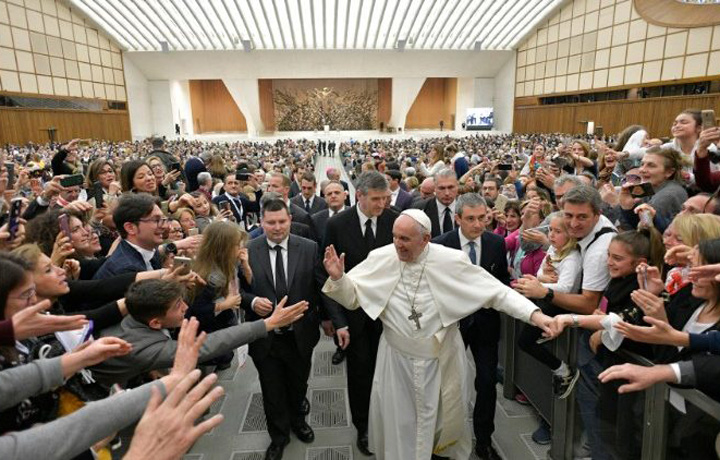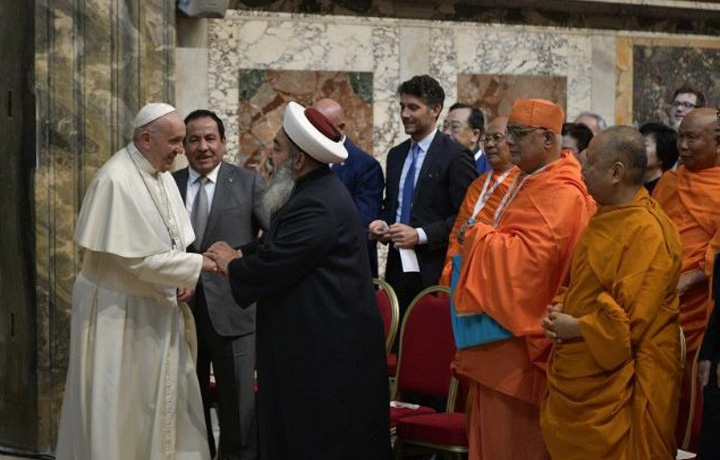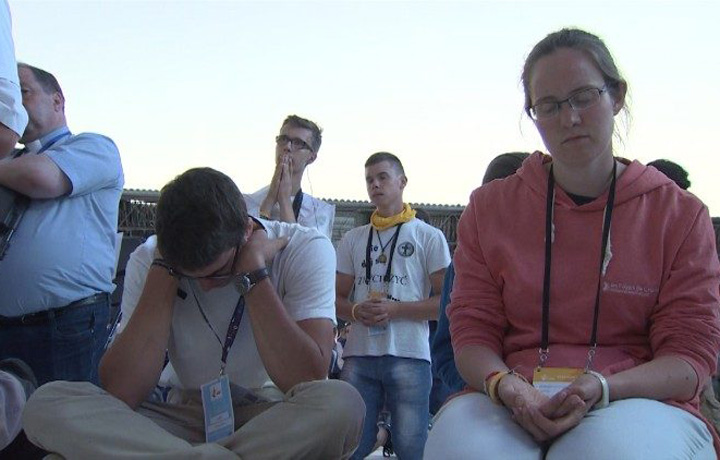Pope Francis meets group from Tel Aviv University
(Vatican Radio) Pope Francis met on Monday with a delegation from Tel Aviv University, stressing the need to develop a culture of wisdom that can form future leaders who are sensitive to the profound ethical issues facing our societies.
Please find below the full text of the Pope’s greeting to the delegation from Tel Aviv University
Dear Friends,
I offer you a warm welcome, and I thank Professor Joseph Klafter, Rector of Tel Aviv University, for his kind words.
To all of you I express my appreciation for your commitment to the education of the young, who represent the present and the future of society. The work of education, demanding yet essential, calls for great insight and tact, for it seeks to form the whole person. Carrying out this vital service certainly requires professional and technical knowledge and expertise, but also empathy and sensitivity, in order to foster dialogue with students and to promote their formation both as individuals and as future professionals in their areas of study.
In a word, knowledge and wisdom must advance together. Wisdom, in its biblical sense, urges us to go beyond empirical realities in order to discover their ultimate meaning. Universities are challenged to foster a culture of wisdom, one capable of harmonizing technical and scientific research with a humanistic approach, in the conviction that the pursuit of the true and the good is ultimately one. So Solomon, son of David, upon ascending the throne, withdrew in prayer to the temple of Gibeon, and begged the Lord for wisdom in these words: “Give your servant an understanding mind to govern your people, that I may discern between good and evil” (1 Kg 3:9).
Our world urgently needs to develop a culture of wisdom. We need to find ways of forming leaders capable of striking out on new paths in the effort to meet today’s needs without prejudice to future generations (cf. Laudato Si’, 53). Meeting this challenge in an effective way is all the more important in the light of our rapidly evolving global society, marked by social and economic crises and intergenerational conflicts. I am confident that your University will strive to produce future leaders sensitive to the profound ethical issues facing our societies and the need to protect and care for the most vulnerable of our brothers and sisters. For only by serving an integral human development can science and the arts display their full dignity.
I thank you for your visit, and I pray that you will always thirst for that wisdom which is a divine gift enabling us to lead good and productive lives. May the Lord bless you, your families and your important work.
(rv/kmc)






